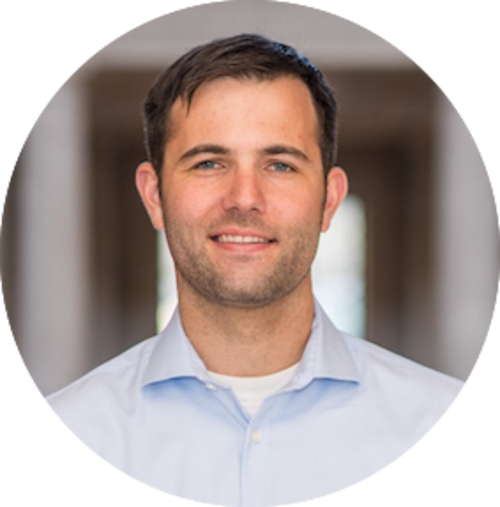
Math model helps major league sports safely welcome fans back
Waterloo grad’s startup analyzes the health risks of attending games in different venues during the pandemic

Waterloo grad’s startup analyzes the health risks of attending games in different venues during the pandemic
By Robin Morden Faculty of MathematicsAfter a year of playing games to empty bleachers, sports franchises are beginning to welcome back fans. Yet, with COVID-19 circulating and a significant portion of the population still unvaccinated, finding ways to open safely is paramount.
For help with this challenge, many franchises are turning to Omnium, a startup launched by Waterloo math alumni Johnny Valeriote (MMath ’09), Colin Davidson (BMath ’11), and Adam Carter (BMath ’11). Partnering with Stemmler Technologies, another University of Waterloo founded startup, Omnium created an application that uses a mathematical model—the Omnium AIR™ Airborne Infection Risk Model—to help teams analyze the comparative risk of attending events at different venues.
“The tool can tell you that going to an event at your arena at full capacity is five times riskier than going on a plane, for instance,” Valeriote says. “That's not going to be allowed, but what we’re then able to do is figure out where the risk coming from. Perhaps, you need to reduce your capacity to 25% or change the way you’re doing your concessions.”
This recent work in sports is a new area of analytics for Omnium, whose principal focus is on the grocery or consumer packaged goods (CPG) industry. Launched in 2018, the company uses advanced data analytics to help CPG brands develop effective customer marketing strategies and business models.
In addition to their CPG work, they added a focus on sports when approached by Delaware North, the Buffalo-based hospitality services business and owner of the Boston Garden, about the challenge of reopening. Omnium worked with an independent research team, composed of scientists from the University of Washington, Washington University in St. Louis, and Carnegie Mellon University to develop a mathematical model (see their peer-reviewed paper about the model) that incorporated epidemiological data and biophysical principles. The model was flexible enough to accommodate changes in our understanding of the disease, such as the increasing concern with aerosol transmission and lessening worry about surface transmission.

> Johnny Valeriote (MMath '09)
> President and Co-founder, Omnium
The model has proven an instant success. Already, they have worked with teams from every major sports league to develop reopening plans. And the model could have numerous applications beyond just sports.
“One of our clients saw our blog post about the model and said, ‘that’s great, but what about offices and businesses? Can we use it to figure out what it looks like when we go back on site?’” Valeriote says. “We thought that was a really good idea, so we ran with it. Now, we’re working on adapting the model for offices.”
Valeriote developed his data analytics and mathematical modelling skills while completing a bachelor’s in computer science and a master’s in computational math at the University of Waterloo. Knowing firsthand the rigorous and innovative nature of Waterloo’s education, Valeriote was eager to recruit fellow alumni when building his team at Omnium. There are four Waterloo math graduates on Omnium’s core team and the company has hired numerous Waterloo co-op students over the years.
“I've just been constantly blown away by the intelligence and professionalism of Waterloo co-op students,” Valeriote says.
One of the first Waterloo co-op students to impress Valeriote was Keegan Morrissey (BMath ’18) who now works full-time with the company and oversees the internship program.
Morrissey says that Omnium offers students a unique and invaluable co-op experience. At the start of their term, students are assigned a project based on their interests and skills and this project becomes their top priority for the duration of their time at Omnium.

> Keegan Morrissey (BMath '18)
> Data Science Manager, Omnium
“The project is something the student owns—from conceptualization to development to presentation,” Morrissey says. “When they’re done, it’s something they can remove the proprietary data and information from and show to another company or put on their LinkedIn page.”
This high-stakes work teaches students the value of their mathematical skills. “Co-op students take the math and modelling skills that they’ve learned in their classes and apply them to real-world problems,” Morrissey says. “Often they are sitting at the same table as executives, helping them make multimillion-dollar decisions.”

Read more
Wade Wilson is a sports mental performance consultant

Read more
The global race to produce a vaccine that will be effective in protecting us from COVID-19

Read more
The Pfizer and Moderna COVID-19 vaccines have fueled both hope and falsehood. Here, Professor Kelly Grindrod debunks the most common myths she and her colleagues have heard about the new COVID-19 protection.
The University of Waterloo acknowledges that much of our work takes place on the traditional territory of the Neutral, Anishinaabeg, and Haudenosaunee peoples. Our main campus is situated on the Haldimand Tract, the land granted to the Six Nations that includes six miles on each side of the Grand River. Our active work toward reconciliation takes place across our campuses through research, learning, teaching, and community building, and is co-ordinated within the Office of Indigenous Relations.